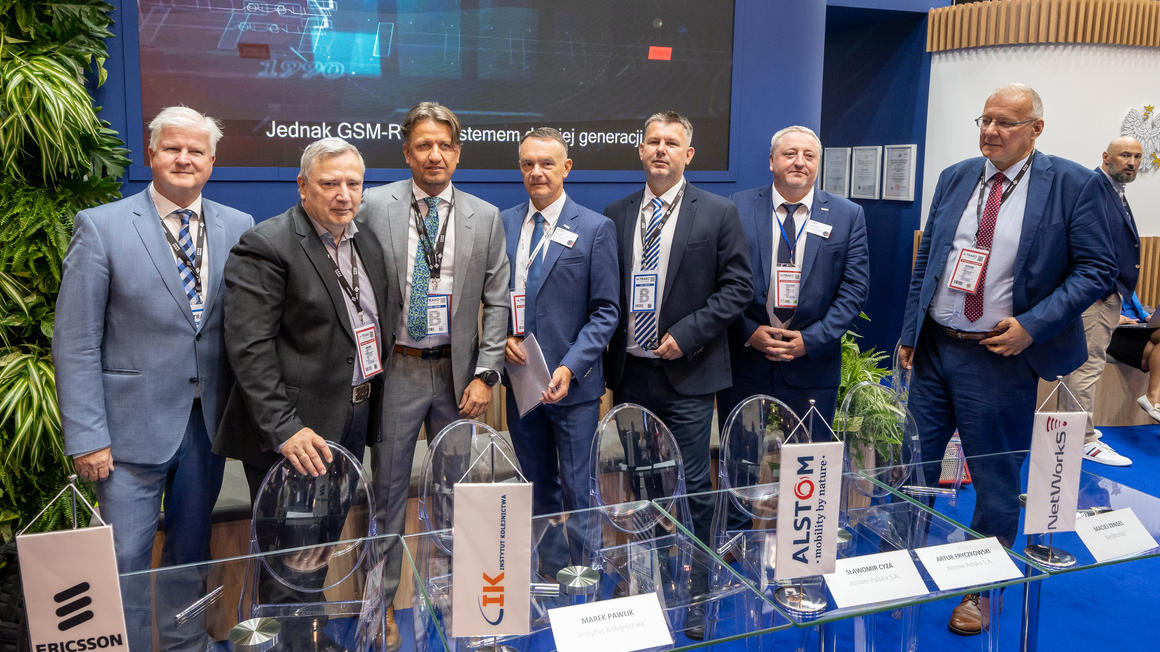 Alstom, Ericsson, NetWorks! and the Polish Railway Institute signed a letter of intent regarding the implementation and testing of the FRMCS system (Future Railway Mobile Communication System) in Poland. As part of the newly announced cooperation, the signatories of the Letter of Intent will engage in joint research and development projects, verify requirements and solutions in actual railway conditions, such as on a full-size track, and create and develop training models and certifications for the FRMCS system.
Alstom, Ericsson, NetWorks! and the Polish Railway Institute signed a letter of intent regarding the implementation and testing of the FRMCS system (Future Railway Mobile Communication System) in Poland. As part of the newly announced cooperation, the signatories of the Letter of Intent will engage in joint research and development projects, verify requirements and solutions in actual railway conditions, such as on a full-size track, and create and develop training models and certifications for the FRMCS system.
“The digitisation of the Polish railway sector is a significant challenge facing all market participants, including rolling stock and technology suppliers and research institutions. As the Polish Railway Institute, we wish to use our many years of experience, unique know-how and access to infrastructure to ensure that the process of testing, certifying and implementing FRMCS on Polish tracks goes as smoothly and quickly as possible,” Andrzej Massel, the Head of the Polish Railway Institute said.
Based on the Letter of Intent, Alstom will provide a modern control subsystem for vehicles, Ericsson will provide a radio telecommunications network for the FRMCS pilot implementation and NetWorkS! will provide competences in telecommunications solutions for the railway sector, as well as the construction and maintenance of the FRMCS test network. The Polish Railway Institute will provide the necessary research infrastructure where the FRMCS system will be tested.
“At Alstom, we work every day to make mobility smart and sustainable, both when it comes to rolling stock and signalling solutions. The new FRMCS standard is necessary due to the need for further digitisation, unification at the international level and increasing the safety and capacity of the railway network,” said Sławomir Cyza, the Managing Director of Alstom in Poland, Ukraine and Baltic States.
FRMCS is an advanced communications standard meant to replace the currently used GSM-R system. Its main goal is to increase the capacity of the existing railway networks and optimise their costs of operation. It has been designed by the International Union of Railways (UIC), in cooperation with key representatives of the railway sector, and represents an important step towards a full digitalisation of rail transport.
Share on:



